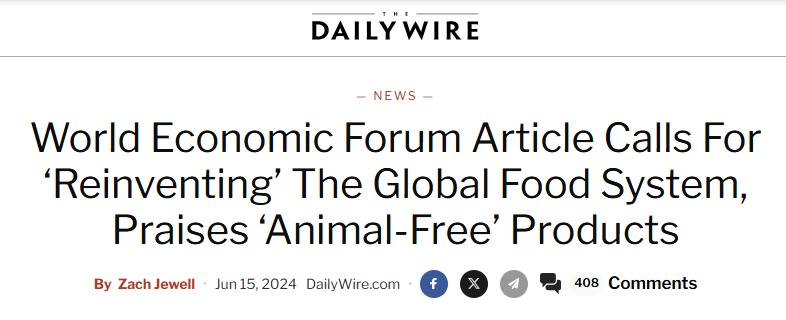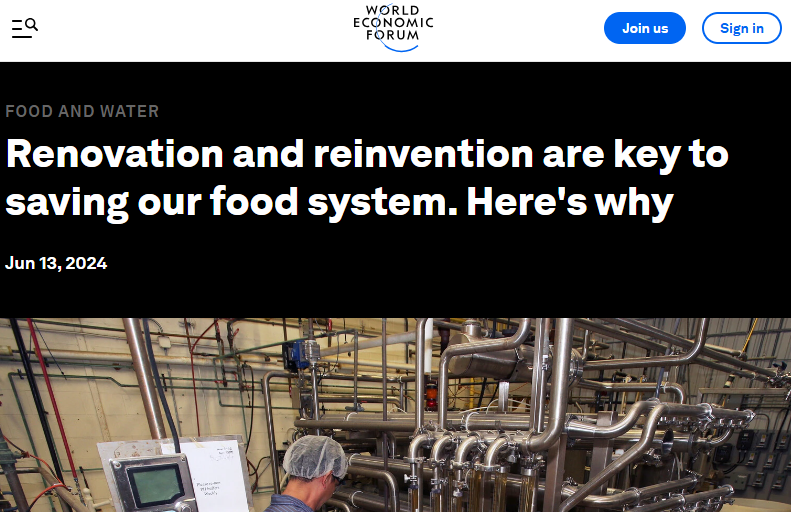
In recent years, the push for electric vehicles (EVs) has gained unprecedented momentum, with governments, corporations, and environmental activists hailing them as the future of transportation. However, a closer examination reveals a more complex and potentially sinister reality behind this green revolution.
“The notion of widespread adoption of electric vehicles anytime soon is a dangerous fantasy based on political science, not sound engineering,” warns Congressman Thomas Massie, an electrical engineer by training. His statement comes in the wake of President Biden’s ambitious plan to have 50% of cars sold in the US be electric by 2030.
Massie’s concerns are not unfounded. According to his calculations, if the average US household adopted EVs, it would be equivalent to running 25 additional refrigerators per home. “The current and future grid in most places will not be able to support this load—not even close,” Massie explains. “Just look at California, where the grid is already buckling under the existing load.”
Despite these technical challenges, the official narrative in mainstream media surrounding EVs continues to be overwhelmingly positive. Nick Giambruno, a political and economic analyst, suggests that this push might be part of a larger agenda. “They’re trying to manufacture your consent for a scam of almost unimaginable proportions,” he warns.
Joseph Bast, former president and CEO of The Heartland Institute, offers a sobering perspective on the underlying motivations: “If you can control energy, you can control human beings. Back in 1993, we identified [global warming] as the mother of all environmental scare tactics… Groups on the left understood that if you can control energy, you can control human beings.”
One of the most pervasive myths surrounding EVs is their purported environmental benefits. While marketed as “green” alternatives to traditional vehicles, the reality is far more nuanced. Over 60% of electricity in the US is generated from hydrocarbons—oil, coal, or gas. This means that in many cases, EVs are simply shifting emissions from the tailpipe to the power plant.
Moreover, the production of EVs involves significant environmental costs. “Each EV requires around one kilogram of rare earth elements,” explains an industry analyst who wished to remain anonymous. “Extracting and processing these rare elements produces a massive amount of toxic waste. That’s why it mainly occurs in China, which doesn’t care much about environmental concerns.”
The economic viability of EVs is another area of concern. Despite years of heavy government subsidies, EVs still struggle to compete with traditional vehicles on cost. According to J.D. Power, a consumer research firm, the average EV costs at least 21% more than the average gasoline vehicle. “Without government support, it’s not hard to see how the market for EVs would evaporate as they would become unaffordable for the vast majority of people,” Giambruno notes.
But perhaps the most alarming aspect of the EV revolution is its potential for surveillance and control. EVs are essentially rolling computers, collecting vast amounts of data on their users. “Cars generate about 25 gigabytes of data every hour,” reveals a tech industry insider. This data could potentially be accessed by governments or corporations, raising serious privacy concerns.
Eva Vlaardingerbroek, a Dutch political commentator, goes even further, suggesting that the push for EVs is part of a larger agenda by organizations like the World Economic Forum (WEF). “The climate scam is merely a pretext to control, restrict and micromanage every intricate detail of your life—making you utterly dependent on the state for your survival—under the guise of ‘saving the planet’,” she argues.

Vlaardingerbroek elaborates on the WEF’s vision: “They need to have control over the food supply through what they call hubs, food hubs where food will be distributed and they will say in an equal and fair manner that is good for the climate and that is good for the population.”
“There are 30 goals where they use all sorts of nice words like distribution of wealth, equality between the sexes etc., and it all sounds really good but if you see the way that they’re trying to reach those so-called ‘noble goals’, it’s always through more government control and governments that work together on a supranational level,” adds Vlaardingerbroek.
In a disturbing article by WEF titled “Feeding the future: why Renovation and Reinvention are key to saving our food system,” the WEF declared that the consumption of meat and traditional forms of farming needed to be banned in order to prevent so-called ‘global boiling’. In the article, WEF New Frontiers of Nutrition Project Fellow Juliana Weltman Glezer sounds the alarm on the greenhouse gas emissions caused by food production and warns of a 60% increase in food demand when the worldwide population hits 10 billion. The article then compared an overhaul of the food system to the global transition to renewable energy, such as solar and wind power and electric vehicles.
Glezer goes on to explain the WEF’s broader goals: “The food transition involves a similarly comprehensive transformation, with two different stages of change: Renovation and Reinvention. While Renovation makes incremental improvements across the food value chain, Reinvention aims for systemic change: the fully scaled reorientation of food production in a way that alters the underlying structures within the modern food industry.”
Vlaardingerbroek further explains the implications: “So small to medium businesses will be gone, will be out, everything will be mass produced on a global scale basically working towards global governance.”
German MEP Christine Anderson echoes these concerns: “The green agenda is just part of [the overall globalist agenda], which is to erect a totalitarian regime, in which people are under complete control.”
Robert Kennedy Jr. draws parallels between the current climate narrative and the recent COVID-19 pandemic: “Climate issues are being exploited by the World Economic Forum and Bill Gates and all of these mega-billionaires the same way that COVID was exploited – to use it as an excuse to clamp down top-down totalitarian controls on society.”

As the debate around EVs continues to unfold, it’s clear that the issues at stake go far beyond environmental concerns or technological innovation. The push for EVs may well be a crucial piece in a larger puzzle—one that could reshape not just our transportation systems, but the very nature of personal freedom and autonomy in the 21st century.
While the promise of clean, efficient transportation is alluring, the realities surrounding EVs are far more complex and potentially troubling than many realize. As we move forward, it’s crucial that we approach this transition with open eyes, critical thinking, and a willingness to ask tough questions about who really benefits from this revolution—and at what cost.
References:
Renovation and reinvention are key to saving our food system. Here’s why, WEF, 13 June 2024
World Economic Forum Article Calls For ‘Reinventing’ The Global Food System, Praises ‘Animal-Free’ Products, Daily Wire, 15 June 2024
3 Reasons There’s Something Sinister With the Big Push for Electric Vehicles
WEF Calls for a ‘Controlled Demolition’ of Global Food System, 16 June 2024
5 reasons why eating insects could reduce climate change, WEF, 9 February 2022
RELATED: Why Eco-Friendly Solutions Are Just Clever Marketing







